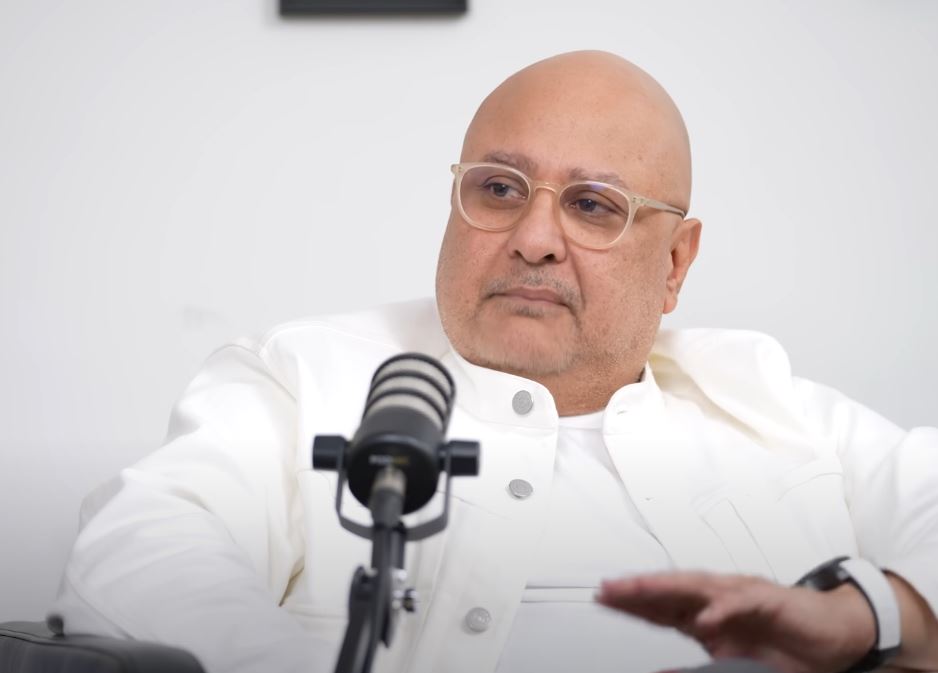
Irwan Mussry’s estimated net worth of around USD 350 million is very remarkable, both in terms of the amount itself and the multi-layered approach that went into it. He has established himself as the face of Indonesia’s luxury sector as CEO of Time International, bringing and fostering renowned labels like Chanel, Cartier, and Fendi for a clientele that has become very comparable to its regional counterparts in Singapore and Hong Kong. Jakarta is now firmly established on the world map of high fashion and prestige retail because to his business, which is not only profitable but also incredibly successful at influencing taste.
When considering his business trajectory from the perspective of luxury distribution, it becomes remarkably evident. Once merely a watch distributor, Time International today runs over 90 locations and enjoys a devoted following among Indonesia’s elite, who view Mussry’s carefully chosen collection as a symbol of prestige. This strategy has proven especially advantageous at a time when Southeast Asia’s demand for high-end products has grown dramatically due to the region’s expanding middle class and younger generation, which is keen to adopt international luxury standards.
Irwan Mussry – Personal and Professional Overview
| Category | Details |
|---|---|
| Full Name | Irwan Danny Mussry |
| Date of Birth | November 15, 1962 (Age 62) |
| Birthplace | Surabaya, East Java, Indonesia |
| Nationality | Indonesian |
| Occupation | Entrepreneur, CEO of Time International, Film Producer |
| Net Worth (Est.) | Around USD 350 Million (approx. Rp 1.25 trillion) |
| Major Businesses | Time International, Fashion Distribution, Property, Film, Culinary |
| Spouse | Maia Estianty (married 2018, Tokyo, Japan) |
| Parents | Charles Mussry (father), Djoedjoek (mother) |
| Religion | Converted from Judaism to Islam |
| Public Recognition | Asia’s Most Influential Indonesia (Tatler 500, 2021) |
Mussry’s inability to rely on a single sector is what gives him his extraordinary versatility. In addition to watches and fashion, he has boldly entered the fields of real estate, cosmetics, cooking, and even filmmaking. His entry into the Korean cosmetics market, where he distributes brands like Laneige and Innisfree, demonstrates his ability to spot trends among younger audiences. However, his real estate holdings, which are less well-known, offer a significantly stronger base of stability, guaranteeing that his fortune will be remarkably resilient over many years.
Another aspect of his career that highlights his especially creative approach to wealth accumulation is his work as a film producer. By providing cash for projects, he not only investigates creative industries but also strengthens the link between entertainment, culture, and luxury. This capacity to strike a balance between monetary gain and cultural significance is reminiscent of global tycoons such as François-Henri Pinault, who combined fashion and art to create a unified empire.
His marriage to the well-known Indonesian musician Maia Estianty has increased his notoriety outside of the business world. They frequently appear at international fashion shows or music-related events, representing an ambitious combination of culture and business. The relationship is very obvious: Maia adds star attraction, while Mussry adds corporate gravitas, and together they strengthen the reputation of Indonesia’s affluent class. Because of this, they are extremely effective cultural ambassadors, demonstrating how business tales and personal lives may converge to generate impact.
Mussry uses social media to promote his lifestyle in a way that keeps his reputation strong. He frequently discusses his love of music, motorsport, and horology with his more than one million Instagram followers. His luxury portfolio is subtly but amazingly well marketed through these posts, which are more than just personal reflections. Mussry makes sure his impact appeals to both established elites and aspirational customers by fusing personal honesty with commercial storytelling.
The magnitude of his accomplishment is further supported by comparisons with other moguls. Even while he may not have as much money as some of Indonesia’s wealthiest people, including Robert Budi Hartono, he has had a notably creative influence on luxury culture and lifestyle. Mussry’s presence has significantly raised Indonesia’s cultural legitimacy in the luxury industry, a symbolic leap that cannot be quantified by numbers alone, much like Michael Jordan’s impact on basketball economics.
His lifestyle and charity are also incorporated into the public discourse. Tales of his Chanel, Valentino, and Cartier-branded presents at family gatherings or his regular attendance at international luxury shows illustrate how wealth can be both a personal possession and a public statement. Similar discussions about celebrity entrepreneurs in other markets are echoed by this visibility, which both encourages aspirational Indonesians and ignites debate about wealth distribution.
Mussry’s fortune has a wider significance since it illustrates Indonesia’s economic expansion. In terms of luxury expenditure, the country has made great strides in the last ten years, and Mussry’s companies have played a key role in this change. Through strategic alliances, he has brought in international brands as well as a sophisticated, aspirational, and culturally aligned attitude with Asia’s luxury cities.
